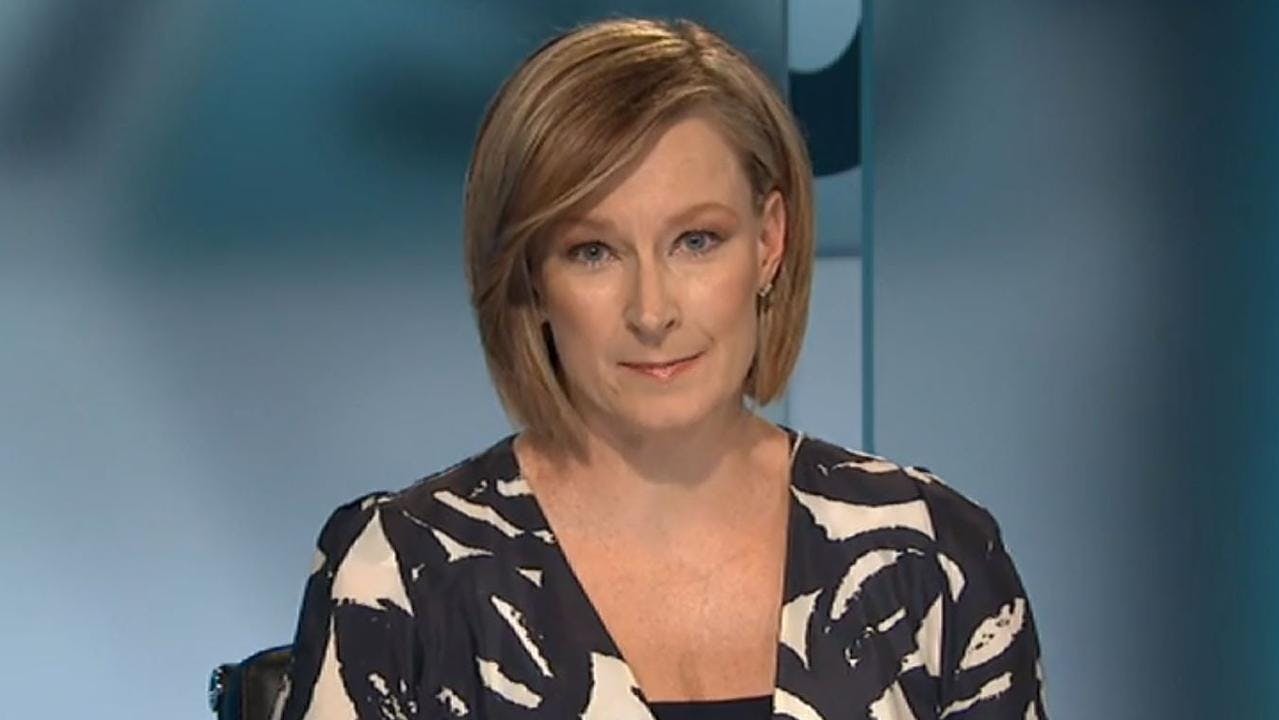Leigh Sales: the ABC's anti-lockdown campaigner

Anti-lockdown lunacy isn’t the exclusive preserve of right-wing commercial media. Since the coronavirus first hit Australia last year, the ABC has been keen to get in on the act. Take the example of Leigh Sales, one of Australia’s most prominent journalists and an important public representative for the ABC as host of the primetime current affairs program 7.30. Sales has wielded that influence to undermine public health, campaigning for Australia to move away from Covid-19 elimination.
“Next time you hear a Premier claim a short term lockdown for a handful of cases has ‘crushed’ the virus – remember that the data so far shows they’re pointless”, Sales tweeted on 24 May, the day four mystery cases were detected in Melbourne. The tweet linked to an analysis by the Sydney Morning Herald of previous outbreaks around the country.
Hundreds of people responded online to refute the claim. Patience may have run thin, given the memory of Sales repeatedly questioning the value of lockdowns in February, during the last Victorian outbreak. And it was clear that her “questioning” was on behalf of the economic interests of bosses, not the health and wellbeing of workers: “If snap lockdowns are going to continue to be a tool, an option, for a small number of cases, how can Victorian businesses make any regular planning, let alone investment planning?”, she asked the premier.
Sales’ program aired a typical interview with Melbourne restaurant owner Caterina Borsato on 7.30 this week, after Melbourne’s most recent lockdown had been extended. This is how Sales introduced it: “The Victorian government’s decision to keep Melbourne under lockdown comes at a heavy cost for its residents, particularly those trying to run businesses”. She then invited the business owner to comment on matters of public health: what did she think of the elimination strategy espoused by the Victorian chief health officer earlier that day, and would people in Melbourne be comfortable with a more Sydney-like strategy, with “a degree of virus circulating”? Why would a business owner be treated as an expert on this topic, if not to suggest that health policy should be subordinated to the economic needs of bosses?
That same day Sales tweeted: “Suggested Q for tmrw – since covid deaths for under 60s in Australia are minuscule, why not reject lockdowns once you have 75% vaccination of over 50s + vulnerable people?”
Unsurprisingly, Sales has faced plenty of criticism for her pro-business, anti-health advocacy. Sales and her industry colleagues have responded to online criticism by labelling it “trolling” and “bullying”. The Age published a piece titled “Leigh Sales versus the trolls: How the 7.30 host handles the COVID hot seat”: “Sales declined to comment for this story. But her executive producer Justin Stevens said the abuse she is subjected to online was ‘unacceptable [and] sometimes truly disgusting’”, the piece read.
“As anchor of the program Leigh does much of the heavy lifting ... her job is to question and challenge decisions taken by people. Asking questions isn’t expressing a point of view, it’s doing her job as a journalist”, Stevens told the Age.
“This seems to be misunderstood by some in the audience. Would the public prefer us to go with the flow, not ask any questions and be subservient to every decision taken? Of course not, and that isn’t our job as journalists.”
But the article provides no evidence that Sales has been “bullied” or “trolled”. Rather, the online responses are a small sign of the sanity of ordinary people and the popularity of public health measures among them.
“There’s a difference between asking the questions that need to be asked, and asking questions that either promote an anti health expert perspective, or overlook what we actually have accepted as fact (eg it’s not just deaths we’re protecting against) without calling it such”, one person responded on Twitter.
Sales and her colleagues were so insulted by “the public’s” expression of opinions and disagreements on the internet that they considered it a form of unacceptable personal abuse. But that makes sense: the capitalist media, including the state broadcaster, act as a gatekeeper. A select few are entitled to decide which ideas society should discuss and how. Elite journalists and business owners are among those few.
The ABC is far from exempt. Its top journalists display the same kind of affinity with business owners that many have come to expect of the Herald Sun. Why doesn’t Sales ask about the tens of thousands of casual workers in Melbourne who went without an income, due not to the lockdown but the inhumanity of Australia’s welfare system?
Sale proposes to drop lockdowns once we’ve vaccinated the most vulnerable. That’s easy to dismiss given the state of Australia’s vaccine rollout, but the logic is still worth addressing. It’s close to the attitude of the UK government, which uses mass vaccination of the vulnerable to justify reopening the economy while cases are spiking rapidly and a new, more dangerous, virus variant has become dominant.
It’s the logic that weighs profits against health and decides in favour of the former, of letting “the bodies pile high” to protect business, as Boris Johnson argued in Britain. Even with mass vaccination in the UK, thousands of people are falling ill with a serious illness every day, with unknown long-term consequences. And more people will die as a result. In Australia, if Sales’ position were to prevail now—while we’re largely unvaccinated—it would mean death on a much larger scale.
Meanwhile, after Melbourne’s lockdown was extended, we learnt there was a second and unknown source of infection in the city. If the state government had listened to Sales on 24 May, we’d almost certainly be facing a much bigger health crisis than we are now. But that is exactly the point: Sales is part of a chorus that demands we learn to live with the virus, and its human cost.